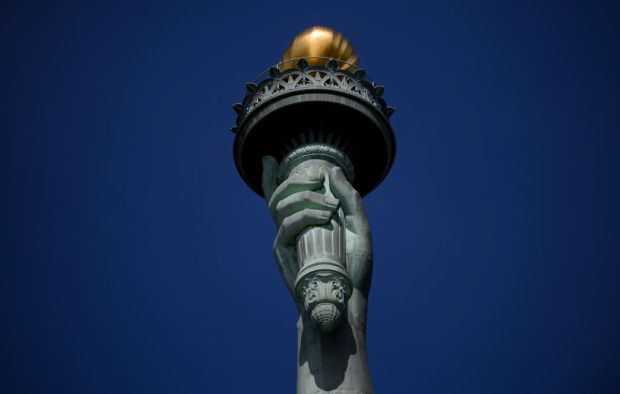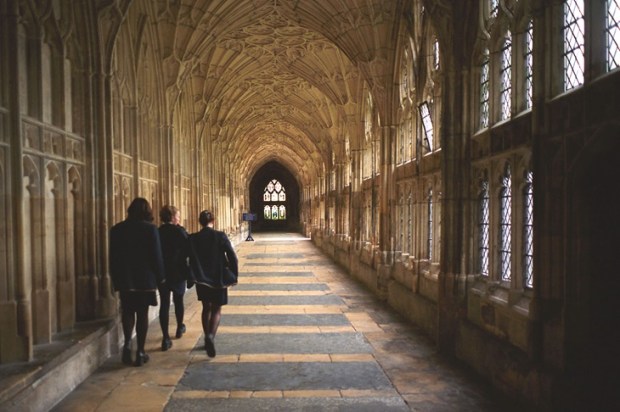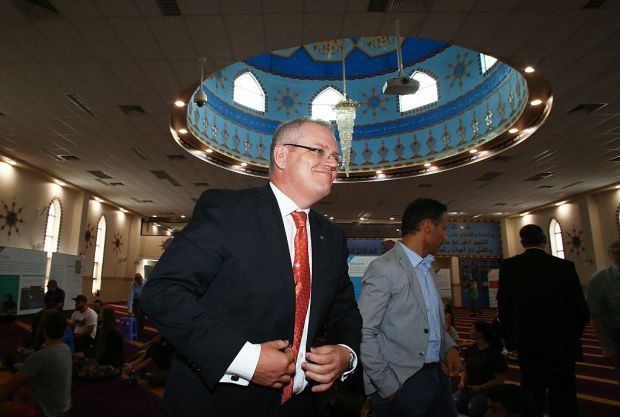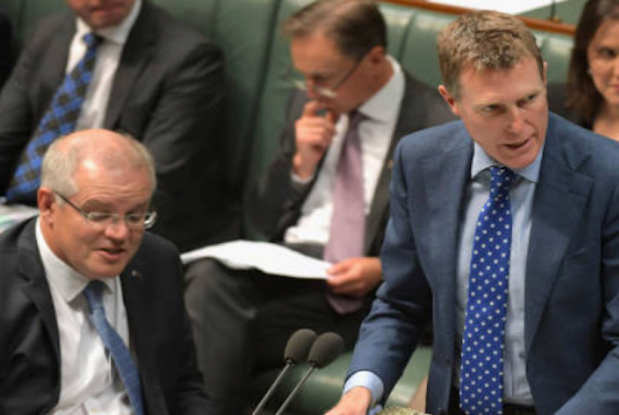On August 16, Western Australia’s Attorney General John Quigley tabled in Parliament the Law Reform Commission’s report into the Review of the Equal Opportunity Act 1984 (Project 111). As stated on the website of the Western Australian government, the Commission, which authored the report and where I served for five years (2012-17), made 163 recommendations including anti-discrimination protections to those that identify as ‘trans, gender-diverse, or non-binary without the need for recognition from the Gender Reassignment Board’, as well as strengthening legal protections for ‘LGTQIA+ staff and students in religious schools’.
The understanding in this recommendation to portray religious schools as somehow different from other social institutions is unfortunate. When recruiting staff or appointing officeholders, a political party could be expected to display discrimination resembling that practised by religious bodies. It is reasonable, for example, that a politician from the Labor Party might discriminate against individuals with conservative views when recruiting staff for her office team. Likewise, environmental advocacy bodies such as Greenpeace or the Australian Conservation Foundation might reasonably be expected to discriminate against Climate Change sceptics when appointing scientists to their Scientific Advisory Committees.
Why then is it considered necessary, in some quarters, to curtail the ability of religious organisations to follow positive discrimination practices when seeking to develop their organisations according to their core values? This is why the general exception guaranteed under the present legislation in WA should continue to apply to all employment positions of religious schools, and include all attributes of employees except for race, age, and a person’s responsibilities as a career. Of course, some religious schools may only need protections for some employment positions, but the State should still provide these schools with the same right to make these decisions and protections that are often provided to other organisations whereby membership is strictly based on other relevant attributes such as gender, sexuality, political opinions, or race. As law professor Patrick Parkinson writes from a Christian perspective:
‘The issue of Christian issues is not the right to ‘discrimination’. That puts the issue in negative and pejorative terms. The core claim is a right of positive selection. Christian schools and organisations only ask to be treated equally with other employers that may have legitimate reasons for wanting to appoint only those with certain characteristic relevant to the identity of the organisation. It is quite understandable that gay bars might prefer to appoint only gay staff, that Thai restaurants might prefer to have Thai employees, and that government ministers would want to staff their officers with people sympathetic to the values of their political party. Recognition of minority group rights on an equal footing is another version of equality. A right of positive selection is rather different from discrimination. It is easy to see the problem if a restaurant advertised for staff of any nationality, so long as they were not Thai. That would be discriminatory. However, it is quite different if a Thai restaurant advertise for Thai staff. Selection based in part on the characteristic which is relevant to the employment is not discriminatory.’
This, of course, is very much about protecting freedom of association, which plays an important role in promoting democratic pluralism by supporting an authentic environment of social diversity. To show due respect for this important right of every true democratic society, the government in Western Australia must avoid interfering in the internal matters of religious schools and allow their adherents to retain the capacity to determine these issues for themselves. As noted by law professors Rex Ahdar and Ian Leigh in their insightful book Religious Freedom in the Liberal State (Oxford University Press, 2013):
‘Freedom to associate with others of like mind necessarily involves freedom to exclude people who do not share the beliefs in question. In a liberal society, those so excluded are free to join other religious groups (or to form their own group) and so this should not be seen as harmful. On the contrary: if the State were to prevent exclusivity through its non-discrimination laws, this would amount to denial of a basic aspect of religious liberty. Paradoxically, perhaps, exclusive societies add to the diversity of society.’
In this sense, it would be deeply regrettable if these LRCWA recommendations were accepted by the WA government and incorporated in the relevant legislation. These recommendations reveal an illiberal mindset which is uncomfortable with the existence of religious diversity within Western Australia, and favours a dominant public system in which young Australians are educated according to a particular, state-sanctioned perspective. After all, the establishment of religious schools is an effective way that people of faith can freely educate their children (and other members of the community) of the merits of their religion.
Rather than fostering diversity in the educational sector, the recommendations made by WA Law Reform Commission will produce an educational system where people of faith are forced to have their children educated in light of the secularising hegemony of the State. Of course, this would be inconsistent with Article 18 of the International Covenant on Civil and Political Rights, which declares, ‘The States Parties to the present Covenant undertake to have respect for the liberty of parents and, when applicable, legal guardians to ensure the religious and moral education of their children in conformity with their own convictions.’ And also Article 19 which states that the right to freedom of expression ‘shall include freedom to seek, receive, and impart ideas of all kinds’.
William Wagner, who is an emeritus professor of US constitutional law and retired US federal judge, explains that the right of parents to direct the upbringing of their children ‘rests upon deeply rooted common law foundations’. This right, according to him, aims to ensure that parents maintain the primary role in educating their children, whilst being able to delegate part of that role to other bodies of their personal choice. Accordingly, a significant way in which governments can protect this right is by providing religious diversity by providing religious schools with sufficient freedom, so that they can employ persons compatible with the school’s worldview.
Demonstrating a genuine respect to equality in our culturally diverse community necessitates a protection for the choices of people of faith, and affirming their expressions of religiosity. Of course, a key way that the WA government could achieve this important goal is through allowing religious people to create supportive educational institutions, and permitting them to manage group membership so that they remain committed to the values and principles of their founders. As noted by law professor Ian Benson:
‘Religion is an equality right itself and religious people are entitled to non-discriminatory treatment in terms of their religion as well, so placing equality and non-discrimination over against religion or placing some forms of non-discrimination (say, sexual orientation) as things more important than the religious person’s freedom against non-discrimination is an error – though an all too common one.’
Of course, educational institutions that are committed to the preservation of their religious identities may eventually decide to employ persons with poor mission fit due to operational necessity, or because some diversity in the staff body may not have a significant adverse impact on the religious environment of the school. However, these decisions do not constitute evidence that mission fit is not important for teaching and non-teaching employment positions at these schools. On the contrary, a person’s mission fit is often quite crucial for a religious school as it allows the school to promote its own religious identity as an authentic religious institution. The Rev Dr Mark Durie, an academic who writes on relations between human rights and religious freedom, explains as follows:
‘For a secular person, teaching mathematics has nothing to do with religion. However, for a religious person – and indeed for a religious organisation – all actions can be considered to be worship. What distinguishes many religious organisations is that they see their whole actively as a corporate act of worship, done in devotion and service to God, in accordance with the doctrines and principles of their faith. One reason they want to employ people of faith is that they want the whole organisation to corporately serve God through its activities. The secular judges regard faith as an essentially personal and individual affair, and cannot understand this perspective because their religious worldview cannot comprehend it.’
This goes without saying that religious schools also play an important role in protecting the rights of minorities. They assist minority groups with the enjoyment of their religious culture, acting as positive measures of protection, and for allowing the participation of these minorities in decisions that affect their own communities. This is why the general exception guaranteed under the presently legislation should continue. Of course, some religious schools may only need these protections for some employment positions, but the WA government still must provide these schools with the same democratic freedoms to make decisions and protections that are often provided to secular organisations whereby membership is often strictly based on other relevant attributes such as political opinions.
Above all, it is essential for these religious schools that they can freely choose people of likewise persuasions during the appointment of non-teaching officeholders and recruitment of teachers. And since no government should have a right to disrespect not only religious freedom but also freedom association and the right to equality, the WA government should reject, and not endorse as it has done, these recommendations of the WA Law Reform Commission about strengthening protections for LGTQIA+ staff and students in religious schools.
Augusto Zimmermann is professor and head of law at Sheridan Institute of Higher Education in Perth. He is also president of the Western Australian (WA) Legal Theory Association and served as a commissioner of WA’s Law Reform Commission from 2012 to 2017. Zimmermann has authored numerous books, including “Christian Foundations of the Common Law” (3 Volumes, Connor Court Publishing, 2017).
Got something to add? Join the discussion and comment below.
Get 10 issues for just $10
Subscribe to The Spectator Australia today for the next 10 magazine issues, plus full online access, for just $10.


























Comments
Don't miss out
Join the conversation with other Spectator Australia readers. Subscribe to leave a comment.
SUBSCRIBEAlready a subscriber? Log in